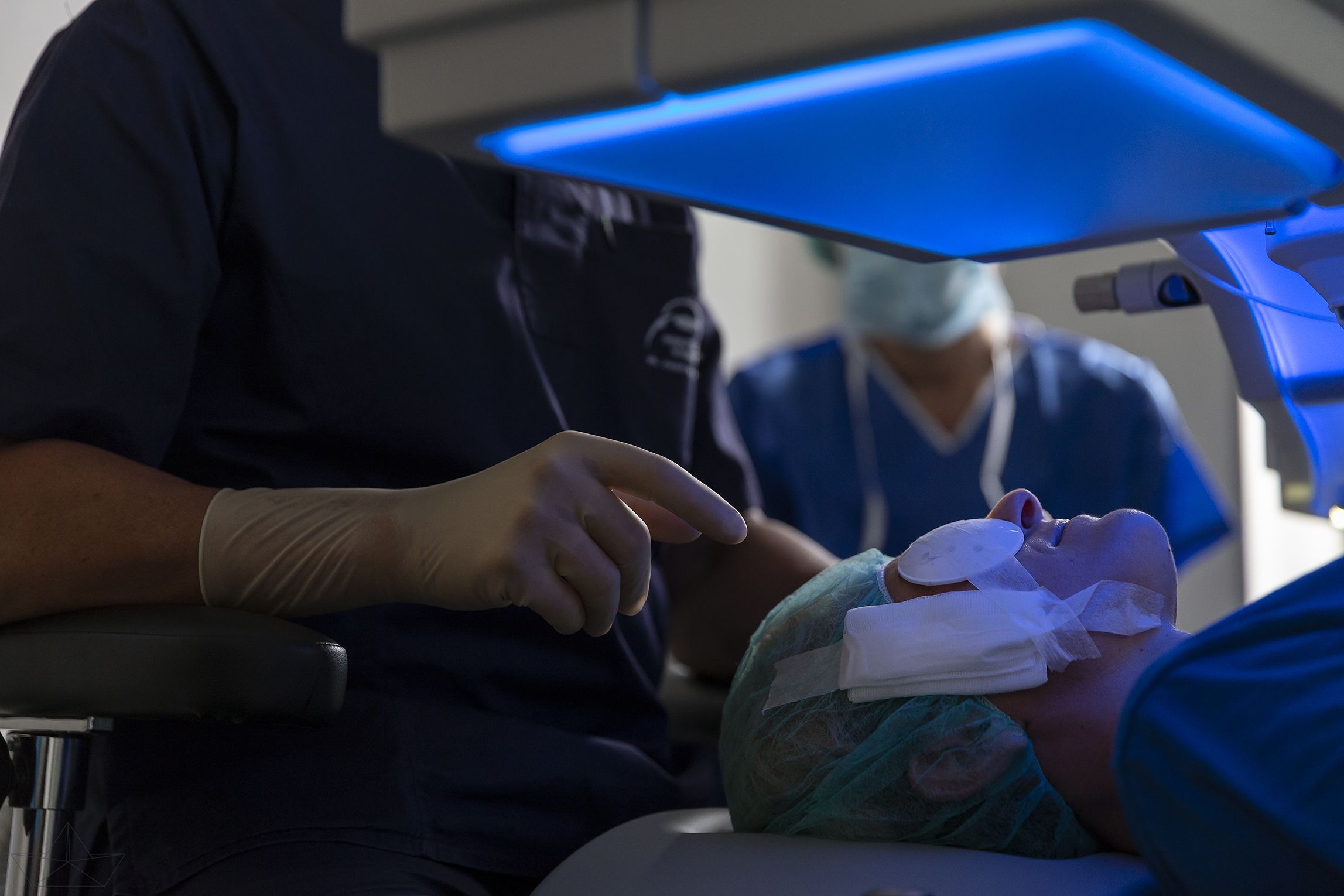
Refractive lens exchange
The best option for the correction of high refractive errors that cannot be treated by laser eye surgery. The eye’s natural lens is replaced with an artificial intraocular lens. The intraocular lens does not cause allergies or ‘rejection’, does not require special care or maintenance nor does it affect aesthetics or natural vision.
Refractive lens exchange is a procedure that allows surgeons to correct high refractive errors that otherwise could not be treated with laser surgery. It consists in the replacement of the eye’s natural lens with an intraocular lens implant (IOL) using a cutting-edge technique called phacoemulsification: through a less than 0.08-inch-long incision in the cornea, the surgeon inserts an ultrasound probe that breaks up the natural lens and suctions out its pieces. Through the same cut, an intraocular lens implant is then inserted into the site of the natural lens. IOLs come in different shapes, sizes and focusing powers to meet the correction needs of the widest range of vision problems and the most diverse eye structures. Intraocular lenses do not cause allergic reactions or rejection. They do not require special care or maintenance, as they last a lifetime, nor do they affect aesthetics or natural vision.
In patients with presbyopia and cataract, multifocal or non-diffractive Edof (extended depth of focus) lenses are used. These lenses allow for the correct focusing of objects in near, intermediate and far vision. Multifocal lenses use Wavefront Shaping technology, a system that minimizes visual disturbances and aberrations through a profile similar to monofocal IOLs. They offer a greater visual field without creating aberrations or other disturbances.
Refractive Lens Exchange Procedure Steps
Incision is made
Emulsification breaks up cloudy lens
Through an incision of 6mm diameter the lens is implanted
The incision heals on its own
Refractive Lens Exchange: the Procedure
Not all refractive surgeons can perform refractive lens exchange. For the treatment to be successful, expertise in cataract surgery is essential. It is recommended for the correction of high myopia and hyperopia as well as for presbyopia and cataract removal.
With over 30 years of experience at the forefront of laser and surgical vision correction for athletes and other patients, Dr. Angelo Appiotti is a recognized authority on advanced refractive surgery in Europe.
The Best Candidate
- Older than 45
- Myopia > 15 – 20 diopters
- Hyperopia > 6 – 7 diopters
- Early cataract
- Presbyopia
The Benefits of Refractive Lens Exchange
Firstly, lens replacement is best suited for patients with thin corneas and is the only viable option for people with high refractive errors. Secondly, if the treatment does not produce the desired refractive outcome, the IOL may either be replaced with another lens with a different focusing power or treated with excimer laser surgery to perfect the correction. Lastly, since the natural lens is replaced with an implant, patients cannot develop a cataract in the future.
Visual recovery
Recovery from refractive lens exchange surgery is almost immediate and usually takes about a week.
Potential side effects and complications of Refractive Lens Exchange
Refractive lens exchange is more invasive than excimer laser surgery. Among possible risks, infection is the most serious complication compared to laser treatments. Within a few months or years from surgery, some patients may experience a potential complication, i.e. the opacification of the posterior capsule containing the lens implant (a condition also known as ‘secondary cataract’).
If that happens, a YAG laser capsulotomy may be performed as an outpatient procedure. In a matter of seconds and without pain, this laser treatment removes the opacity for good.
Make an appointment today
Dr. Appiotti performs laser eye surgery in state-of-the-art eye clinics in Milan or Verona. To make an appointment and determine whether you are a good candidate for the laser treatment available for your vision problem, please contact us by email or phone
